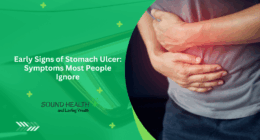Can eating chewing gum cause Bloating?
There are many causes of bloating including serious conditions like coeliac disease. However, if you don’t suffer from any underlying conditions affecting the stomach, swallowing too much air could be the cause of the problem.
Swallowing too much air can happen when you chew a piece of gum.
You swallow air as you chew and this brings gas into your gut.
This especially happens when you chew with your mouth open, taking the excess air in.
To avoid this, the NHS advises keeping your mouth closed when having gum.
Another reason why chewing gum can lead to bloating is the composition.
Some sugar-free types of gum often contain sorbitol and xylitol acting as a sweetener.
For some people, these ingredients can cause gas or even act as laxatives.
Artificial sweeteners can also cause cramping and chronic diarrhoea.
Incomplete digestion and fermentation of these sweeteners in the large intestine often lead to these painful problems.
Even though everyone has a different tolerance, gas usually occurs when you consume large quantities.
British Medical Journal reported more severe health problems connected to sorbitol in people who consumed more than 30 grams per day.
That’s equivalent to the amount found in about 24 pieces of sugar-free gum.
ALSO READ: Hypertension diet: The tasty 99p herb that lowers your risk

Apart from the gum, there are other foods that are known to cause bloating.
These include beans, onions, broccoli, cabbage, sprouts and cauliflower.
The reason why these make you bloated can be due to their fibre and sugar profiles.
The NHS advises cutting down on foods like this whilst maintaining an intake of five portions of fruit and vegetables a day.
If you are experiencing persistent bloating, the reason might be a digestive problem or diet issue, the NHS warns.
Some of the reasons behind the bloating might be:
- Excess farting
- Constipation
- Food intolerance
- Coeliac disease
- Irritable bowel syndrome.
See a GP if your bloating symptoms persist to rule out serious conditions.
Post source Daily Express











Comments are closed.